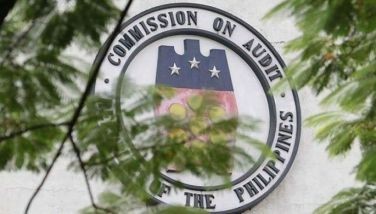CA approves oil pipeline reopening
MANILA, Philippines - The Court of Appeals (CA) has recommended the reopening of the 117-kilometer Batangas to Manila fuel pipeline operated by the First Philippine Industrial Corp. (FPIC).
The CA’s former 11th division, however, said in its Dec. 21, 2012 ruling that the FPIC should first submit a certification from the Department of Energy (DOE) that the pipeline is already safe for commercial operation.
The CA said its recommendation for the reopening is subject to the Supreme Court’s approval. Should the SC affirm the CA decision, the FPIC has to submit the DOE certification within 60 days or face the permanent closure of its pipeline, the appellate court said.
The pipeline provides around 60 percent of the fuel supply in Metro Manila through the Pandacan depot, the country’s largest oil depot.
A writ of kalikasan against the FPIC-operated pipeline, issued by the SC in November 2010, was remanded to the CA for further hearings to determine if the pipeline would be closed permanently or be allowed to resume operation.
“The court recognizes the importance of the pipeline for a more effective and cheaper distribution of petroleum products to end-users. Nonetheless, the right of the people, including generations yet unborn, to a balanced and healthful ecology cannot be sacrificed in the name of progress,†stated the CA decision, penned by Associate Justice Fernanda Lampas Peralta. Associate Justices Mario Lopez and Socorro Inting concurred.
Other factors
The same CA order also stated that the certification from the DOE should also take into consideration “the adoption of the appropriate leak detection system to be used in monitoring the entire pipeline’s mass input versus mass output.â€
The CA also said that the FPIC “must also consider the necessity of replacing the pipes with existing patches and sleeves†in 15 segments of the pipeline.
FPIC president Anthony Mabasa, in a statement, said they accept the CA’s decision. “FPIC has been working closely with government agencies and has always complied with government regulations concerning its efforts to ensure the pipeline’s integrity and restore the environment health of the areas affected by the pipeline leak in Bangkal, Makati,†he said.
Earlier tests
In March 2012, the DOE submitted a five-page manifestation to the CA recommending the reopening of the FPIC pipeline after the borehold, segmented pressure and leak tests it conducted in December 2011 confirmed the pipeline’s structural integrity.
The University of the Philippines National Institute of Geological Sciences, the UP institute of Civil Engineering and the Societe Generale de Surveillance also declared the pipeline to be safe.
Then Energy Secretary Jose Layug told the CA that the pipeline is still the “safest and most efficient†mode of transporting petroleum products since it “poses lower risks to life and limb.â€
Layug said the pipeline has a higher level of reliability than transporting fuel products through lorry trucks as it is not affected by weather, traffic and truck ban in Metro Manila. Incidents of theft, pilferage and hijackings are also minimized, he said.
- Latest
- Trending



















